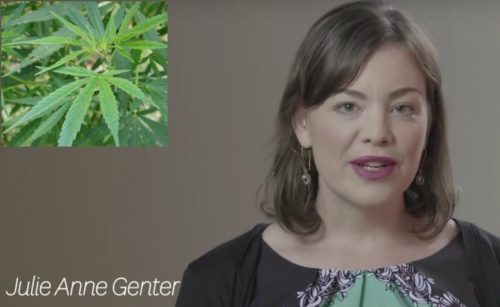
With Julie Anne Genter’s Misuse of Drugs (Medicinal Cannabis and Other Matters) Amendment Bill in the Parliamentary Ballot, our ruling class is being forced to consider the question of cannabis law reform. The short of it is that the bill, if enacted, would finally legalise medicinal cannabis in New Zealand, some two decades behind California, Alaska, Oregon and Washington. This article looks at the precise details of the bill.
The striking thing about the bill, on first glance, is its brevity. There are only six sections.
Clause 5 of Genter’s bill means that cannabis will still be illegal – this bill provides for neither the decriminalisation or legalisation of cannabis (with the exception of CBD – see below). However, this clause inserts another clause, 9A, into the Misuse of Drugs Act 1975, which provides for cannabis to be legally grown for medicinal purposes, subject to a “qualifying health condition”.
Clause 4 tells us what a qualifying health condition is. There are four different groups of conditions. The first three are straightforward: any terminal illness, any severe chronic disorder of the immune or nervous system and chronic back or other pain.
The fourth group of conditions is vague, probably deliberately left so. It is “any other medical condition that a medical practitioner certifies may benefit from supplementary plant cannabinoids”. This has the potential to vastly open up the range of conditions that can be treated by medicinal cannabis – but the decision will be made by medical practitioners, not by politicians.
Clause 9A.2 of the amended Misuse of Drugs Act would allow for any patient with a qualifying health condition, or a nominated support person, to “cultivate, administer, supply, or possess medicinal cannabis” for the purpose of the patient’s lawful use. This is the crucial clause, because it essentially makes it fully legal for a sick person to grow their own cannabis at home – which is just about all the medicinal cannabis community ever wanted.
Of interest to many medicinal cannabis users is that Clause 4.1(c) of Genter’s bill will remove the controlled drug status from CBD preparations. This means that the penalties listed in the Misuse of Drugs Act for various schedules of drugs will no longer apply to CBD. Essentially, this ought to make CBD preparations little different to any over-the-counter pharmaceutical that one might buy from a chemist.
This is an entirely reasonable move because CBD has no psychoactive properties – it does not produce the “high” that wowsers and do-gooders are so terrified of. It also will bring New Zealand into line with similar cultures – CBD is a recognised medicine in Britain, for example.
All in all, this bill, if enacted, would represent a stunning victory for the forces of cannabis law reform in New Zealand. It would make it legal for sick people to grow their own medicine at home as long as they can find a doctor to agree that their use of the plant would be medicinal. This will not only greatly liberalise the cannabis laws but does not go so far that it ought to provoke a counter-reaction.
*
Vince McLeod is a former Membership Secretary of the Aotearoa Legalise Cannabis Party and author of the Cannabis Activist’s Handbook.

Brillant